FMS 2020: Russian RSC Group With Storage-on-Demand Solutions With Distributed Asynchronous Object Storage Support
Enables multi-layered storage based on Lustre file system in 'Disaggregated Composable Infrastructure' and flexible management of NVMe disk pools.
This is a Press Release edited by StorageNewsletter.com on November 16, 2020 at 2:07 pmRSC Group, the Russian developer and integrator of high-dense and energy efficient solutions for HPC, data centers, cloud platforms and storage-on-demand systems, participates in FMS 2020 with Bronze Sponsor status.
RSC Tornado cluster
Since 2018, the company develops, produces and deploys storage-on-demand systems (RSC storage-on-demand). These systems have been deployed at the Joint Institute for Nuclear Research (JINR, Dubna, Moscow region), St. Petersburg State Polytechnic University named after Peter the Great (SPbPU) and the Joint HPC Center of the Russian Academy of Sciences (JSCC RAS).
Russian systems in IO500 rating
Two firm’s deployments are currently the only Russian systems in IO500 list of the best performing HPC storage systems. Govorun HPC with RSC storage platform at JINR holds 17th place in the rating and Polytechnic the firm’s Tornado HPC in SPbPU got 22nd position. These results were achieved by using technology platform for creating distributed composable RSC Storage-on-demand systems based on Intel and Optane SSDs with NVMe interface. When Govorun HPC was installed at JINR in June 2018, it took high 9th place in the worldwide IO500 rating.
DAOS support in storage-on-demand solutions
At FMS 2020, the company announced that its storage-on-demand solutions support DAOS (Distributed Asynchronous Object Storage), new open-source cluster file system developed by Intel Corp. It enables multi-layered storage based on Lustre file system in ‘Disaggregated Composable Infrastructure’ and flexible management of NVMe disk pools, and enhances these levels with high-performance components based on DAOS.
For many years, the increase of nominal storage performance was mostly achieved by boost of serial R/W operations speed. DAOS addresses restrictions of old approaches to high performance storage based on TCP/IP protocol, Linux core architecture and other bottlenecks when applications need fast random data access.
DAOS provides performance increase with architectural principles:
-
Avoidance of CPU/OS kernel processing, interrupts, context switching on data path from storage device to the point of processing;
-
Use of ‘Storage Class Memory’ devices with support of ‘Byte Level Access’ for meta-data and caches;
-
Transparent streaming of continuous and block-based R/W operations in NVMe-based devices.
BasIS orchestration platform for HPC storage architectures
The company uses its experience of building composable disaggregated solutions in DAOS management with RSC BasIS orchestration platform.
Existing DAOS-based solutions required strict hardware-set ratio between processor resources, Optane DC Persistent Memory (PMEM) and SSDs with NVMe interface. RSC BasIS platform enables composable approach for DAOS management combining servers with PMEM and servers with NVMe devices in pools connected with fast network fabric. Use of high-performance adapters with RDMA support, disaggregation of servers with NVMe-based media and PMEM enables on-demand composability without loss of performance.
This approach removes the restriction of PMEM/NVMe ratio in storage servers. Also it increases possible capacity of the storage system. DAOS currently requires allocating at least 6% of local storage with NVMe for PMEM, and this restricts maximum effective number of disks per storage server. However, composable architecture enables connection of unused disks to another server based on DAOS or Lustre.
As well, disaggregation lifts physical server hardware restrictions, like restrictions of PCIe bus lanes that are necessary by both storage media and network adapters and those of server chassis that can hold a limited number of extra devices.
The firm showcased the solution in its presentation during DUG meeting (DAOS User Group) on November 19 at SC20, the virtual conference and exhibition on supercomputing technologies and solutions.
RSC Tornado AFS storage system
The company presented at FMS 2020 their improved Tornado AFS intelligent storage-on-demand system with up to 1PB capacity per node enabled by 32 Intel SSD drives with NVMe in EDSFF.L format (so-called ‘ruler’ form factor). The node also includes 2 Xeon Scalable 2nd gen processors, Optane SSD drives and MPEM modules. RSC Tornado AFS nodes use 100% ‘hot water’ liquid cooling with record low PUE level of 1.04.
Tornado HS hyper-converged node
The firm’s Tornado HS hyper-converged node is another RSC storage-on-demand solution. It is based on two Xeon Scalable 2nd gen processors, Intel Server Board S2600BP with 2x10GbE ports and (optional) Intel Quick Assist Support.
Node supports up to 12x hot-swap Intel SSD drives with NVMe, e.g.:
-
Intel SSD DC P4511 (NVMe, M.2), 1-2TB capacity, configured as disk;
-
Intel Optane SSD DC 4801X (M.2), 375GB capacity, configured as disk or memory with Intel Memory Drive Technology (IMDT).
It provides up to 24TB of fast storage and up to 4.2TB RAM per one node with IMDT. The Tornado HS hyper-converged node uses 100% ‘hot water’ liquid cooling.
About RSC Group
It is a Russian developer and integrator of full cycle innovative, high-dense, scalable, energy-efficient and hyper-converged solutions for HPC, data centers, cloud platfroms and intelligent storage on-demand systems based on Intel architecture, RSC liquid cooling technology and a number of its own know-hows. Since 2018, the company participates in ‘National Champions’ priority project implemented by the Ministry of Economic Development of Russian Federation.
The firm has the potential to create energy efficient solutions with record-breaking power usage effectiveness (PUE), the highest computing density in the industry with standard x86-based processors, to use green design, provide high solution reliability, noise-free operation of computing modules, 100% compatibility and guaranteed scalability with low cost of ownership and low power consumption. Firm’s specialists also have the experience of developing and implementing an integrated software stack of solutions to improve work efficiency and application of HPC systems from system software to vertically oriented platforms based on cloud computing technologies.
The company is a Platinum member of Intel Technology Provider Program, has Intel Select Solution for Simulation and Modeling, Intel Select Solution for Professional Visualization certifications, participates in Intel Fabric Builders Program, has Intel HPC Data Center Specialist status and Intel Solutions for Lustre Reseller Elite status. Performance and scalability of RSC Tornado based solutions are proved by Intel Cluster Ready certification.








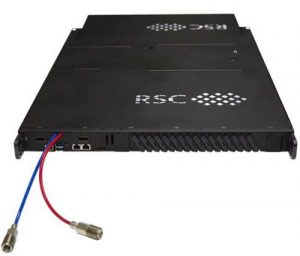
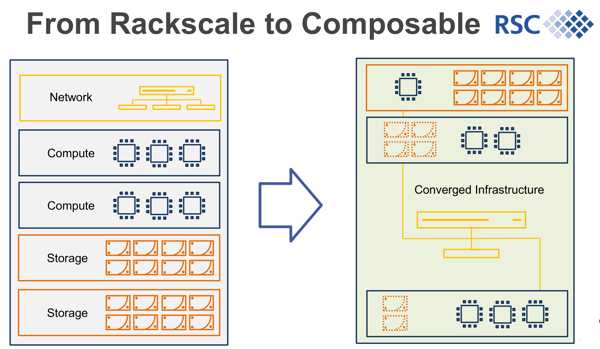
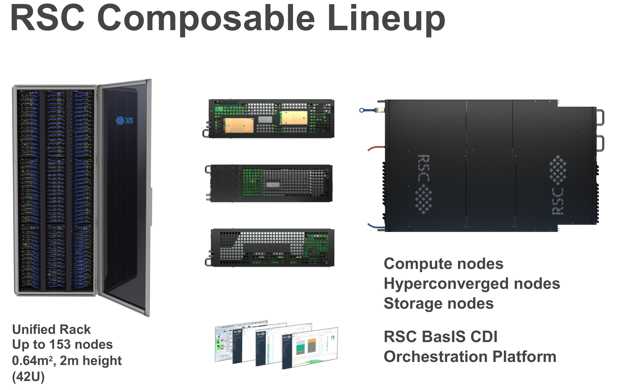
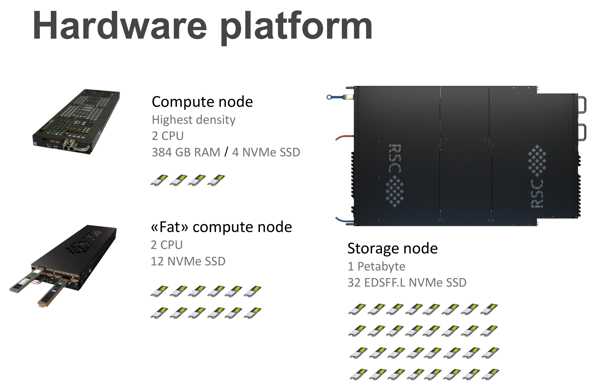
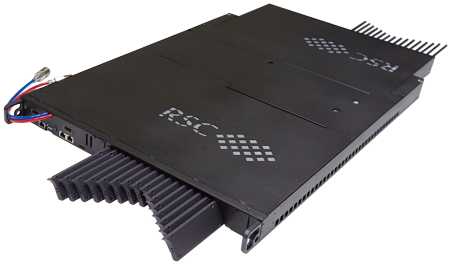





 Subscribe to our free daily newsletter
Subscribe to our free daily newsletter

